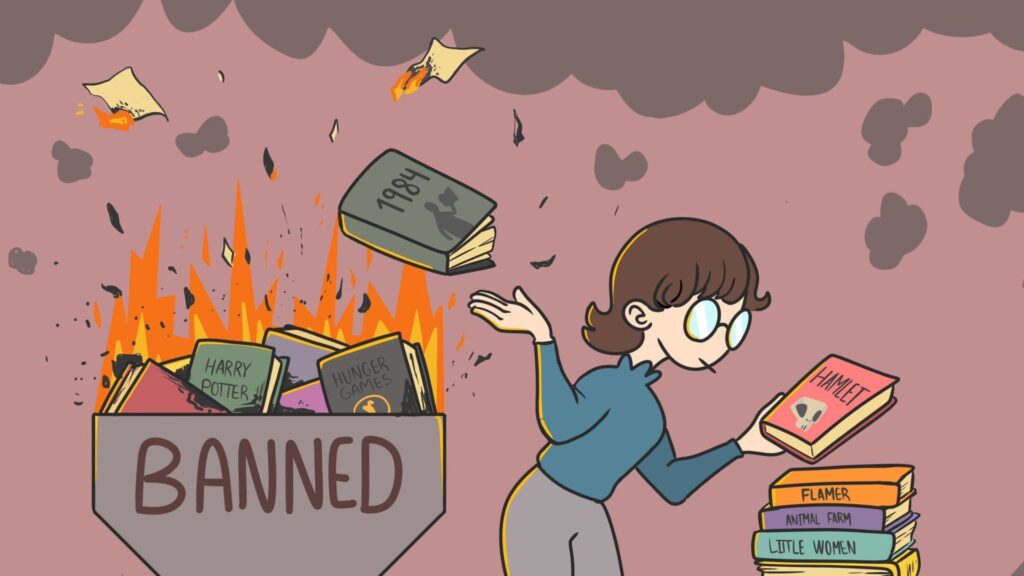Are Books Political? The Fight Against Censorship In The United States
In wake of the 2024 presidential election, an important question arose on social media: ‘Are books political?’
According to PEN America, “Since 2021, a movement to ban books has put students’ freedom to read in jeopardy.”
During the 2023-24 school year, 19 titles were banned in at least 50 school districts nationwide, with the most common being Nineteen Minutes by Jodi Picoult, which depicts a school shooting and exposes the trauma of being an American teenager.
Book bans are expected to increase as conservative parental rights groups campaign against ‘wokeness’ in classrooms. The movement, supported by many politicians, aims to limit access to stories, perspectives and information.
It is fueled by Project 2025, which states, “elementary and secondary education policy should be publicly funded but education decisions are made by families.” If enacted, federal power will be used to facilitate book bans without consequences or revisions.
Among the books proposed for banning, young readers were enraged by the inclusion of modern phenomena such as The Hunger Games and Harry Potter sagas, which have become fundamental in the fantasy and dystopian genres, showcasing positive messages and inspiring readers.
Reflecting on this debate, I revisited my journey with literature. The first book I read was a bedtime story about a little witch who faced rejection and fought to be accepted. The fairy tale showcased a narrative of self-acceptance and perseverance, mirroring real-world struggles.
Overtime, I realized every book has a lesson that can’t be forgotten. Therefore, books are political because they are the materialization of an idea. Authors enact their right to freedom of speech, while readers act on their right to learn and think.
Books are also a reflection of society by exposing its wrongs or creating a better world. They discuss human rights, power struggles, culture clashes—issues that are inherently political.
However, books challenge readers to place themselves in others’ shoes to understand their struggles, goals and mistakes.
If books weren’t political, there would be no calls to ban them or burn libraries. As George Orwell wrote in his book 1984, a classic on lists of banned books, “The further a society drifts from the truth the more it will hate those that speak it.”
Organizations like the American Library Association defended our right to read stating, “ALA will stand up for all Americans’ freedom to read—and we will need everyone who loves libraries to stand with us.”
On the verge of censorship, let’s recognize the privilege of books and the power of knowledge. Literature guides us through the complexities of life and inspires a fairer and equitable society.
As a viral poet and victim of censorship in the Soviet Union during the 1970s, Joseph Brodsky once said, “There are worse crimes than burning books. One of them is not reading them.”

